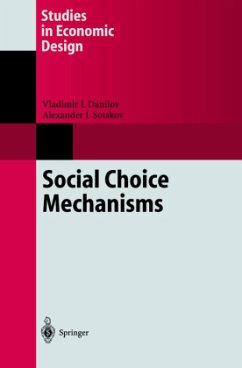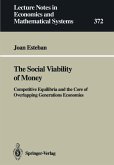The theory of social choice deals with both the processes and results of col lective decision making. In this book, we explore some issues in the theory of social choice and mechanism design. We examine the premises of this theory, the axiomatic approach, and the mechanism design approach. The main questions are what is collective interest, how is it related to individuals' interests, how should one design social interactions, laws, and in stitutions? These questions are not new. Philosophers, social scientists have indeed pondered upon them for years. And, in fact, the organizational struc tures of many social institutions -courts, parliaments, committees and reg ulatory boards -often lack a sound theoretical base. This is not surprising, as it is, indeed, difficult to provide for a comprehensive formalization of the activities of such organizations. Nevertheless, there has been a definite trend towards providing clear and unambiguous rules for collective decision mak ing. Thesevery rules constitute the body of social choice theory and its main object. The basic problem of social choice We explain here more precisely what a problem of social choice is, what approaches might be used to tackle it, and what kind of solutions it leads to. We introduce a few basic notions in preliminarily fashion and, in doing so, we stress both motivations and explanations.
From the reviews: "This is a fine addition to a growing list of books on the theory of incentives. ... the material is very well presented. I particularly like the selection of examples and the way in which they are used. ... Social Choice Mechanisms will be a valuable research tool. ... it is quite easy to move around in the book. ... I found a lot of gems that I had not come across before, even though I was fairly familiar with the terrain." (Donald E. Campbell, Social Choice and Welfare, Vol. 21 (3), 2003)








